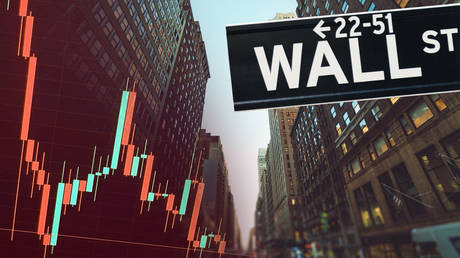US set for another dot-com-style crash, fund manager warns
Stocks could see near-term losses on par with the dot-com bust and the 2008 financial crash, a veteran fund manager is warning. source:TROIB RTS

Stocks reportedly could be in for a decade of next-to-nothing returns
The US stock market is headed for a crash, despite the rallying S&P 500, which risks seeing dismal returns for the next 10–15 years, a veteran fund manager told Business Insider this week.
The S&P 500 has risen sharply in recent months, hitting new record highs in March, after a 24% surge in 2023. The index is up around 8% so far this year.
One of Wall Street’s biggest bears, Bill Smead, Chief Investment Officer with Smead Capital Management, has been warning that stocks appear to be in the midst of a speculative bubble, which could set investors up for a ‘dead ball’ era of performance.
Such a period will last for at least the next decade, according to Smead, who said it would only end once all the enthusiasm for the market’s most expensive stocks has bled out. The process could lead to losses on par with the dot-com bubble and the Great Financial Crisis, he forecast. Stocks have suffered double-digit drops during those crashes.
“It will be more like the ‘00-’03 bear market, or more like ‘07-’09,” Smead told Business Insider. “We’ll probably get two full-blown bear markets in a 10-year time period that will basically negate making any money in the S&P 500 index. You won’t want to buy the S&P 500 index until it becomes kind of a swear word,” the veteran fund manager warned.
READ MORE: US facing worst risks since WWII – JPMorgan boss
He also pointed out that the losses could be fueled by stubbornly high inflation. The Bureau of Labor Statistics’ latest CPI report showed on Wednesday that the consumer price index has come in hotter-than-expected for the last three months, with prices rising 3.8% year-over-year in March.
That’s making the economic landscape look precariously similar to the 1970s, Smead cautioned, right before inflation spiraled out of control, hitting the stock market.
Find more stories on Business, Economy and Finance in TROIB business












